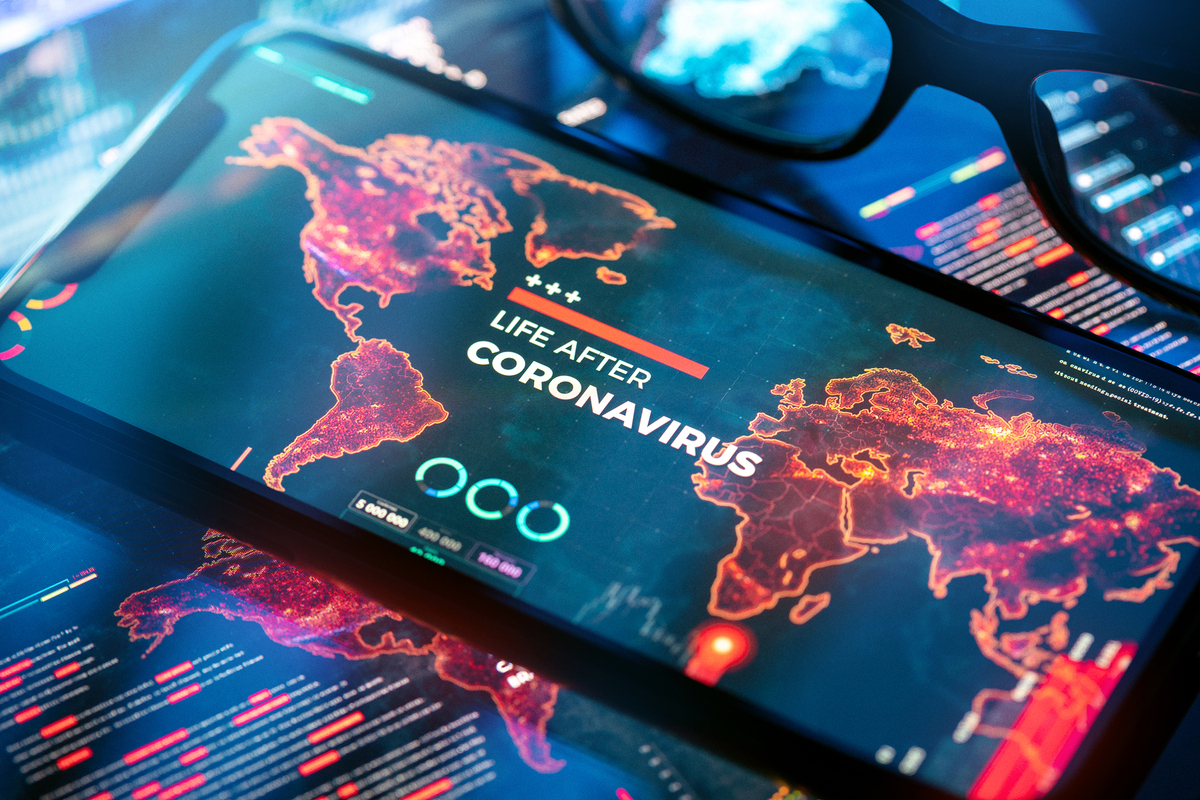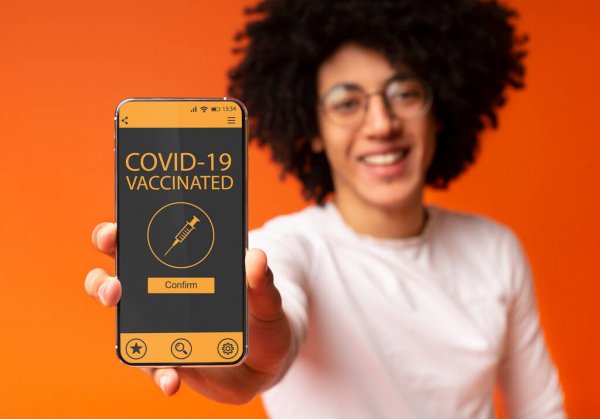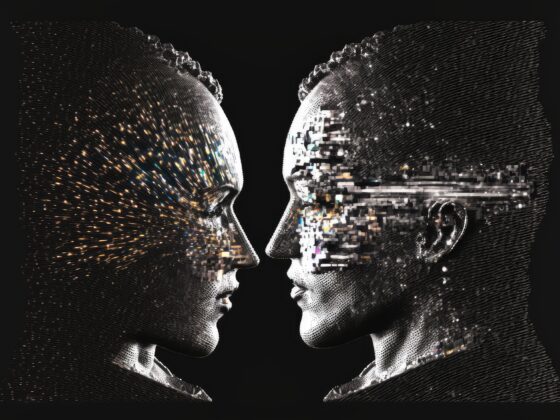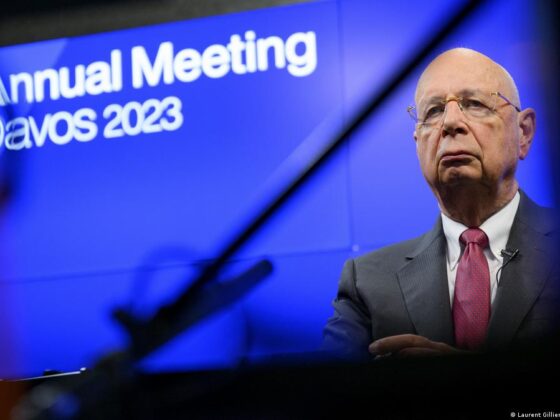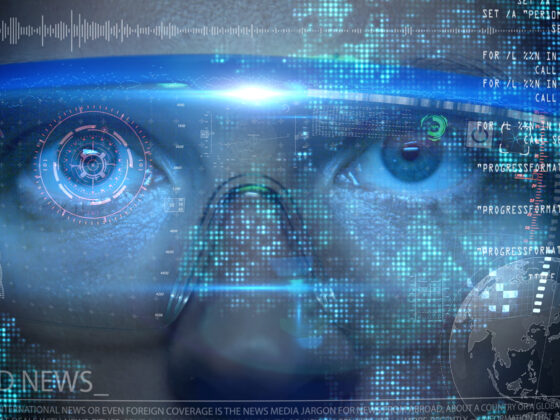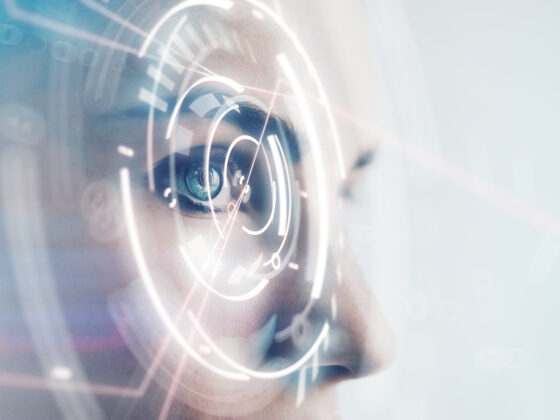Vaccine passports is the digital transformation step-change for a full interoperable world biometric and digital identity platform.
It does not get any more official than this document folks. As I have been saying for the past twelve months. Vaccine Passports are digital identity platforms ready to be dissolved into Industry 4.0 technologies. The global elite engineered a media pandemic on the back of an intense influenza outbreak to bring about a one world global digital identity platform.

In this new white paper authored by the Tony Blair Institute of Global Change titled ‘The Fundamentals of Tech Transformation: Identity in a Digital Age’. The authors are: Blaise Bayuo the Policy Lead, Tech for Development Unit, essentially, he works to influence policy in building and implementing people-centred technology innovation. He previously co-founded two technology start-ups in eCommerce and blockchain fintech.
And Sophie Tholstrup the Head of Tech for Development Policy Unit, she joined TBI in April 2021 from leading policy at the Cash Learning Partnership, a network of 90 humanitarian actors delivering cash to people in crisis. She was previously with the United Nations Office for the Coordination of Humanitarian Affairs and the Department for International Development (DfID).
The white paper describes: Identity for all in a digital age. ‘As more services and transactions are digitalised, accelerated by the pandemic, the ability to prove your identity using secure digital credentials has never been more critical, enabling access to healthcare, social support, and voter registration.’
They quote the United Nations Sustainable Development Goal 16.9 that “By 2030, to provide legal (digital) identity for all, including birth registration”. Because they say there are 1 billion people around the globe who have no legal form of identity and, of those who do, 3.4 billion are unable to use these credentials online. This actual wording comes from the World Bank.
In this article titled: Inclusive and Trusted Digital ID Can Unlock Opportunities for the World’s Most Vulnerable the World Bank Group’s Identification for Development Program is helping countries create robust, inclusive identification systems that can make everyone count.

They say that a global universal digital ID could create economic value equivalent to an average of 6 per cent of GDP in emerging economies by 2030, as well as saving governments 110 billion hours through streamlined systems, and institutions up to $1.6 trillion globally through reduced payroll fraud. They do admit that there are also policy risks, such as people’s right to privacy, which must be properly addressed. As digital ID systems are extended globally, they must be designed to protect privacy and personal data, safeguard users and promote public trust.

Here is a video describing what they require, and that the vaccine passports is just a small step into this direction.
So here are the key quotes from the report, in full:
‘During the Covid-19 pandemic, the role of well-functioning digital ID as a critical enabler of health management has been highlighted, with a part to play in everything from necessary public health surveillance and vaccine rollout to helping countries return to normal life as citizens are inoculated.’
They talk about and big up the achievements of nations such as India and Estonia when it comes to implementation, ‘particularly for those countries willing to take bold steps. India’s Aadhaar ID system is used by more than 1.2 billion residents (about a 90 per cent adoption rate). Similarly, Estonia’s e-ID is used by 90 per cent of its residents to access government services online.’
That’s their blueprint countries, one small and one big.
The white paper links with another paper on the same site, which I will also quote from:

‘The Covid-19 pandemic has highlighted the central importance of universal and reliable digital ID to vaccination registries, the issuing of health passes, and the easing of friction between testing and verification regimes across nations. At any point, a variant that is much more transmissible or much more deadly could arise. The NHS will need to keep track of who has had which vaccine to protect individuals’ health for the foreseeable future.’
‘There is therefore both an urgent need for a health pass to be brought in rapidly as an emergency measure to help manage the easing of lockdown, and for careful, consultative policy and legislative work to set the right framework for proof of health status as a long-term feature of public life.’
‘At the same time, it should continue detailed consultation and policy work to establish the conditions under which health passes could operate fairly and efficiently to help manage new variants or new viruses in the years to come.’
They say ‘to make this as frictionless as possible, the government should explore technologies such as Excalibur’s and Certific, which allow users to validate and upload the results of tests taken at home, as well as at testing sites.’
This goes in synchronisation with the announcements that we could all test ourselves every morning and the results to be loaded into the Vaccine Passport apps. The NHS app is yet to be fully extended with this functionality to enter in LFT tests we can do from home.
The paper mentions the usual suspects ‘several initiatives are already underway. Notably, the WHO, the Vaccination Credential Initiative and the Good Health Pass Collaborative’ .
‘Good health data rests on a reliable ID system. Covid-19 has underscored the lack of reliable IDs yet at the same time created an opportunity for countries to build new and globally interoperable systems to ease testing, vaccination, and travel regimes. As vaccinations are rolled out and many countries consider national and international health passes, a reliable digital ID system is a prerequisite for tracking and verifying the health status of individuals.’
Here is the kicker: ‘These interim solutions, if designed right, could be integrated into and pave the way for a more comprehensive ID system.’
Their recommendations:
‘The case for digital ID as a key enabler of sustainable development has been convincingly made, and there is a dynamic field of research that covers the opportunities, case studies and potential harms of rolling out universal digital ID. Users should be able to control and permit access by third parties for verification purposes. Uses of digital ID should involve access only to the data necessary for a given transaction. For instance, verifying the Covid-19 vaccination status of a person should only produce a “Yes” or “No” result.’
‘A digital ID that is linked to other national data sets and registries should define the interoperable rules and governance structures for each sub-dataset. So, a transaction request to authenticate a user’s nationality may require verification at the birth registry while a transaction request for an individual’s vaccination records may require a second-level check with the digital health registry.’

The paper links to another Digital Identity Paper which quotes:
‘Similarly, identity checks in financial services are often costly and cumbersome, as set out in the Bank of England’s ‘Future Finance’ report chaired by Huw van Steenis. The report concluded that “digital identities could make this process seamless”.’
Also it suggests ‘calling for amendments to the proposed system in relation to biometric identification and inclusion guarantees.’
How will it do all this? – ‘Domestically, this includes the ability of different databases or registries (for example, national ID and civil registration systems) to communicate with each other, exchange data, and facilitate identity queries in a timely and low-cost manner (via open application programming interfaces or APIs), subject to appropriate privacy and security safeguards.’
They are planning for global use:
So what does this all mean, it means the vaccine passports are meant to drive digital identity platforms and flourishing big tech ecosystems based on an authoritative and foundational ID.
And check this: ‘At a minimum, all digital ID systems should be interoperable at the country level. And to maximise benefits, ID systems should be interoperable at the regional and global levels too.’
There you have it folks: Vaccine passports are setting up a global digital identity platform, something we have known for many months now and now its written in a policy document in black and white and is being rolled out globally right now. The plan is for global use of Vaccine Passports by committing to common standards, commiting to common infrastructurse and to build global coalitions to accelerate progress:
Finally, this links back into with Bill Gates Alliances such as ID2020 which they too reference in the white paper, who are seeking to build international coalitions of governments, private-sector actors and civil society, around safe and effective digital IDs while the World Bank and Good ID have developed the common principles.
Vaccine passports will form the foundation of unprecedented surveillance control platforms, which our entire life will be tied to, our health records, national ID records, driver licenses, building passes, our biometric ID for seamless and touchless border controls, our digital banking and credit and finally a new western based social credit system. All of which can be turned off in seconds if we do not satisfy the Vaccine or testing regime requirements.


